By Coach Jen Li Sheng, Genesis Gym Eunos
INTRODUCTION
Supplementation is an interesting topic. As the name suggest, they are used to make up for any nutritional deficiencies you may have. Let’s assume that you already have a healthy diet mainly made up of whole foods in place. Now, let’s explore how supplementation can add more value to your life.
Disclaimer: the following is for education and informational purposes and should not be taken as medical advice.
3 Main Reasons to Supplement
#1: Addressing nutrition gaps
These are the factors that will determine not only your diet but the nutrition gaps that you may have:
- Genetic disposition (you can get your genes tested to now more about what your body inherently requires)
- Lifestyle (shift worker versus regular office hours, smoking versus non-smoking)
- Environment (polluted versus clean, stressful versus uplifting)
- Fitness goals (fat loss versus muscle building)
The combination of these factors will then mean that you will have different diet requirements.
Supplementation helps fill the gaps in areas that you are not getting in enough of a particular nutrient, macro or micro, to support your health and particular fitness goal.
Take for example, if you have difficulties getting in enough fruits and vegetables on a daily basis, a multivitamin or greens drink can be a useful way to get in nutrients.

Most Singaporeans are not getting enough Vitamin D. (Image Source: todayonline.com)
Apart from your food choices, your surroundings or environment can have a big impact as well. This study illustrates the situation that even though Singapore is located in a tropical country with plenty of sun, Vitamin D deficiency can still be a problem. All this highlights a need for supplementation.
#2: If it’s convenient, it’s a go!
Convenience is everything these days! If a method is easier, faster, better, and cheaper, it’s a go. Supplementation very often fulfills these criteria.
A good example to illustrate this point is a good quality protein powder. One of the bigger challenges most of our personal training clients face with their customized diets is hitting their protein goal. There are times when it seems impossible to reach your protein goals. This is in spite of best efforts to prepare food in advance, or plan ahead to ensure there is sufficient protein in the meal when eating out.
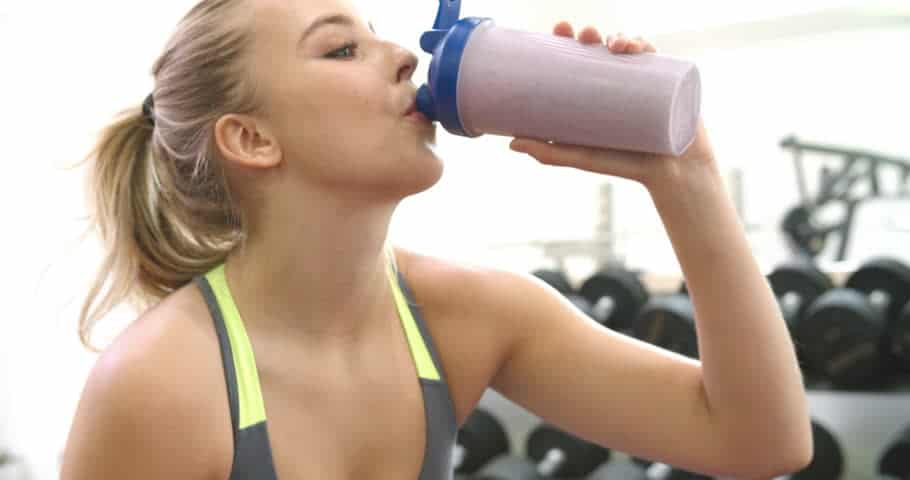
Pop in a serving into a shaker, and you get a quick and convenient serving of protein. (Image Source: shutterstock.com)
This is when protein powder comes in extremely handy. In terms of bioavailability, or how much it gets absorbed, a whey protein powder is up there at the top of the charts. And depending on the brand and type of protein when comparing costs, at between SGD$1-2 for roughly 25g of protein, protein powders can be very cost effective.
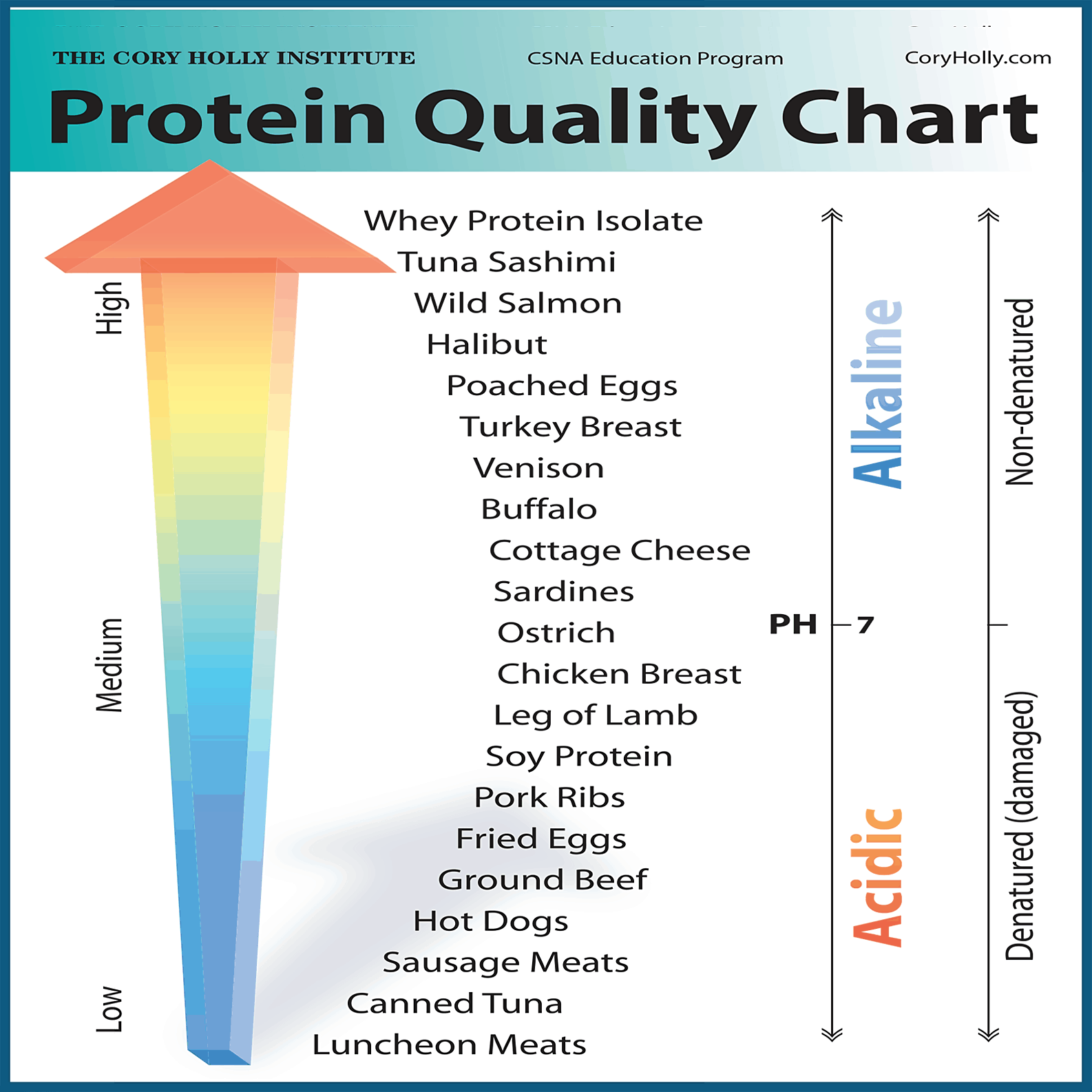
Not all protein sources are of equal standing (Image Source: pinterest.com)
#3: Enhancing results
Maybe you have a great diet plan, and every aspect of nutrition is already taken care of. You are looking for the next step, the extra edge to improve performance and results. Supplements can be something to look at it for that added boost. Creatine has been very well researched to help improve fitness performance, on top of giving some cognitive benefits.
Alpha GPC is a potent nootropic, sharpening mental focus and increasing power output. Of course, if you are not too stressed out, there is always the favourite of fervent gym goers for that energy perk – caffeine.
Above all things, make sure you are well-informed.
Our lives are constantly changing, and nutritional needs change along with them. Be well-informed of what is required by your body in different circumstances to be equipped for the changes.
4 things to look out for in your supplement products:
#1: Manufacturing process
Always choose brands that are reputable, and pharmaceutical-grade. Such brands make sure their manufacturing processes are free from contamination, done with stringent quality control measures, and the ingredients are correctly dosed. Good Manufacturing Practice (GMP), as well as NSF certifications are good certifications to look out for in brands.
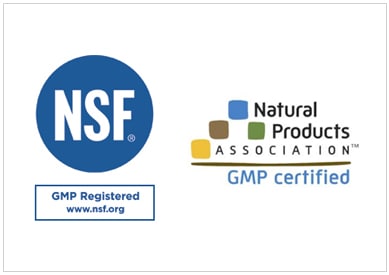
An example of the GMP and NSF certifications
Good brands to consider include Thorne, Designs for Health, Metagenics, and Life Extension.
#2: Quality Ingredients
Just as whole foods are considered healthier than processed foods, the same applies to supplements too – the less processed, the better. You should always look for supplements with the highest bioavailability. Bioavailability refers to the amount of nutrients that can be absorbed into your body upon consumption.
In order to meet the legal requirements of various country labeling requirements, some manufacturers use inferior ingredients or fillers. By doing so, it also helps manufacturers to save costs.
This in turn, reduces the product’s bioavailability, hence decreasing its effectiveness as a supplement.
For example, for zinc and magnesium supplements, we have seen many brands that use oxide compounds for essential minerals like zinc and magnesium. Zinc and magnesium oxides have a bioavailability of 5%, which means that even though you could be ingesting 300mg of elemental magnesium from a 500mg tablet of magnesium oxide, only 12mg gets absorbed. This is not very effective, if you are looking to get 300-500mg of magnesium a day.
Similarly, look out for activated forms of B Vitamins. Although folic acid and folate are terms that are used interchangeably to describe vitamin B9, folate is the activated form that is more readily utilized by the human body, for cell growth and DNA synthesis.
#3: Serving size and dose
Different brands have different serving sizes and doses. So be aware of how much of a nutrient you are getting in per serving. That is, of course, assuming that that the label claims are accurate.
We have heard of horror stories from our mentors about cheap, poor quality health supplements. A doctor got into a lawsuit for recommending 10,000 IUs of vitamin D3 to his patient. But instead of getting it from a reputable source, the patient bought a cheap brand from a supermarket, which contained 100,000 IUs per serving instead of 10,000IUs, as stated on the label. This was only uncovered when investigations took place after the patient suffered kidney problems. This ties in with the first point about getting your supplements from a reputable brand.
Be certain about how much of a supplement you are consuming – it is safer to take smaller, minimum effective doses when in doubt.
#4: Packaging
As good as a supplement is, how it reaches you can also play a part in its effectiveness. Omega 3 fish oils are polyunsaturated fats, and are unstable in its chemical structure. They can go bad when exposed to light and heat, and can react with plastic.
As such, liquid fish oils are best packaged in glass bottles that are opaque. When opting for fish oil capsules, ensure that there is an antioxidant present, like vitamin E, to ensure its stability and freshness.
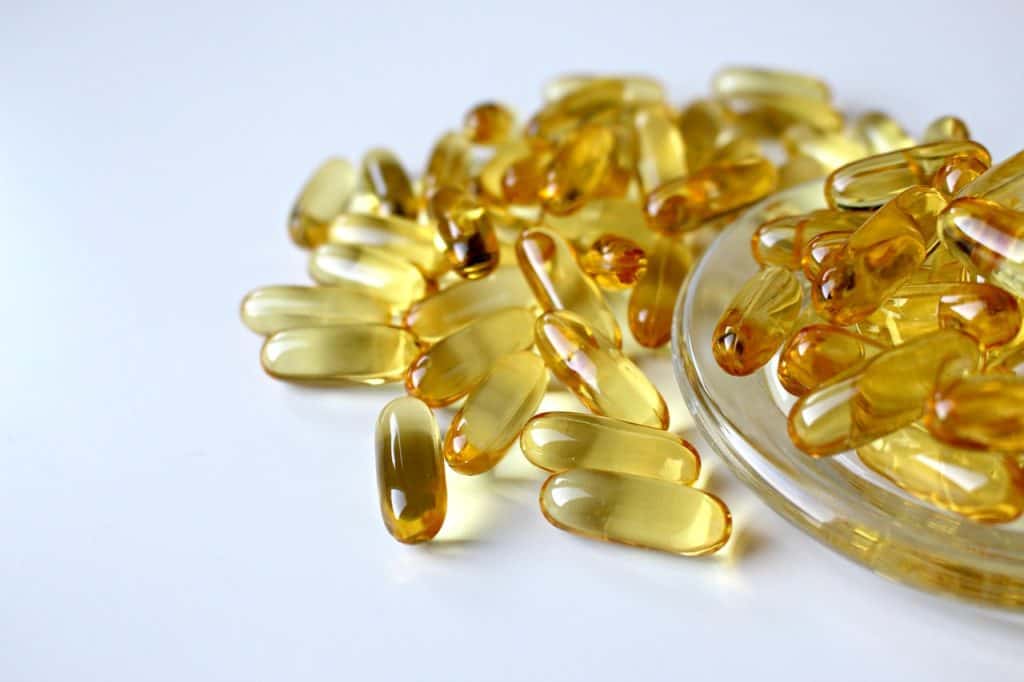
Liquid fish oils can turn rancid when exposed to light and heat, AND can react with plastic.
Consider your own health conditions and goals
#1: Your overall health
Health and wellness should be your focus before looking at goals like toned arms or a 6-pack. Besides, our clients very often find that when health is emphasized, the cosmetic goals fall into place much easier!

Preeth, age 39, had tried many weight loss methods without success. Unfortunately, these unsafe methods damaged her overall health. We focused on restoring her sleep quality, female hormone balance and detoxification pathways so that she was finally able to burn fat in a healthy way. She dropped 16kg of fat and gained 4kg of lean mass in 16 weeks. A truly amazing result, given her starting poor health conditions.
Omega 3s
Omega 3s are essential fatty acids, meaning they cannot be produced by the body itself, and need to be consumed. They are needed to help to bring down inflammation, increase insulin sensitivity, and help with healthy heart, eyes and brain.
Ideally we should be consuming fatty fishes like salmon or cod at least 3 times a week, but we find that supplementing with fish oil is a more consistent way of hitting your nutritional needs.
Vitamin D3
Vitamin D3 is produced by the body naturally when we are under sunlight. About 30 minutes to 1 hour of daily noon-day sun exposure while wearing shorts and T-shirt is recommended.
However, if you have not been under the sun recently, supplementing with Vitamin D3 would be vital. Vitamin D3 is needed by almost all the cells in our body for optimal functioning, having an influence on blood sugar levels, inflammation, and hormonal levels.
Magnesium
We always recommend magnesium to our personal training clients. Magnesium has many good benefits such as:
- Aiding blood sugar management
- Maintaining electrolyte balance for hydration
- Improving sleep quality
- Helping the body to relax and buffer cortisol.
Multivitamin
An “insurance” supplement, a good multivitamin will ensure that you get the minimum requirements for your vitamin and mineral needs, which are many. This can be important in a caloric deficit when food consumption has reduced, or when your diet does not support nutritional needs for whatever reason.
#2: If fat loss is your goal…
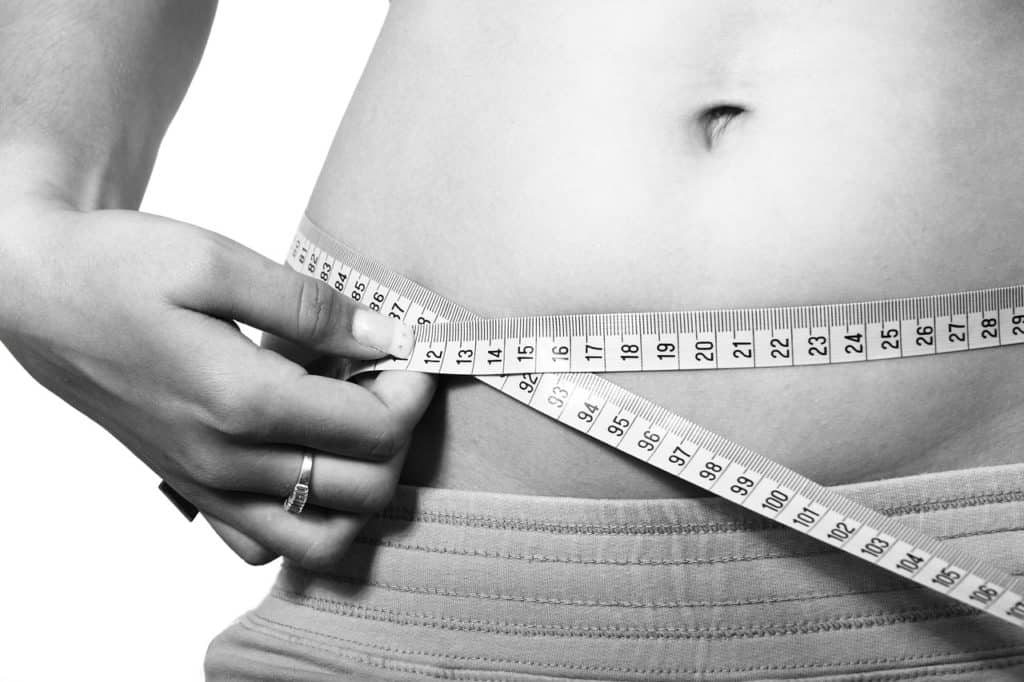
Fat loss is a popular goal, but you must also understand that supplements can only help if the diet is already supporting fat loss.
More often than not, fat loss goals involves a caloric deficit, sufficient protein intake, plenty of fibrous foods and a suitable amount of carbohydrates. When these are in place, we can explore the following:
Fibre
Fibre nutrient aids fat loss by giving bulk to food, making one feel full and satisfied. Therefore, reducing hunger pangs, and a desire to snack. That is one reason why fruits and vegetables are always a feature in a sound and sensible diet for fat loss.
If for whatever reason (and it better be a good one) they are not consumed, or are consumed inadequately, a fibre supplement can be used to fill the gap.
Pysilium husks, apple pectin are good and cheap choices that can be added to drinks. Resistant starches like raw potato starch also helps to nourish your guts, while xanthum and guar gums can be used in recipes to give a thicker consistency to foods.
Omega 3
We've talked about Omega 3s earlier, but it is highlighted again because of the many benefits it gives to the human body, including activating your fat-burning genes and deactivating your fat storage genes. This does not happen in an instant, but comes with regular supplementation over periods of weeks and months.
Glucose disposal agents
Called GDAs for short, this group of supplements support fat loss by redistributing nutrients, shuttling them into muscle cells instead of being stored as fat.

Ceylon cinnamon vs. common cassia cinnamon
Ceylon cinnamon, alpha lipoic acid and banaba leaf extract all help to support fat loss, and are best taken together with a carbohydrate meal. Chromium, as an essential mineral can help as well, but only if your body is deficient in it.
#3: If muscle-building is your goal…
Most of our clients seek to gain more lean mass in order to sculpt their body, improve overall health, or become better at their sport or every day life. More muscle usually translates into more usable strength and better quality of life.

Wesley, age 31, joined Genesis Gym to get into “fitness model” shape safely and naturally. He made steady progress and gained 4kg of lean muscle while dropping 5kg of fat. He managed to go down to 7% bodyfat after joining our personal training package.
Protein powders
This is a staple amongst many gymgoers, but regular folks can utilize them too, for the same reasons. Adequate protein intake is important for preserving and building lean muscle tissue. Protein is also needed to support important daily functions. The body’s natural detoxification process requires amino acids, which are the basic building blocks of protein.
Amino acids are also required for neurotransmitters, supporting brain function. A good quality whey protein isolate can be very handy post-workout, giving the body the nutrition it needs to kickstart recovery. Combined with a serving of fruit or a handful of nuts, a protein shake can be a quick, convenient midday snack. And with so many flavours to choose from nowadays, consumers are spoiled for choice when it comes to taste.
Creatine
Creatine Monohydrate increases cellular hydration, as well as increase phospocreatine stores in your body. It is important for your cells to be hydrated in order for everything to function. Phospocreatine is the first energy source your body taps into when doing hard, heavy or explosive lifting. Well-researched and commonly regarded as safe, creatine can stimulate more muscle growth through the improved performance, and produce better-hydrated cells.
Essential amino acids
Consider taking essential amino acids (or EAAS for short), if you intend to be a serious gymgoer. When doing hard intense workouts, especially when they take longer than an hour, EAAS ensure that the body remains in an anabolic state – this is where your body is in the state to build up muscle, rather than breakdown.
As EAAS are already in amino acid form, which is how the body absorbs them, they are more easily digested and tolerated by people with digestive issues or food intolerances.
Engineered Carbohydrates
The next level up for peri-workout (ie. around the workout) nutrition, engineered carbs like cyclic dextrin have fast gastric emptying times. This means they do not sit in your stomach to digest for a long time, and enter your bloodstream faster than simple sugars like glucose or dextrose.
Initially used by endurance athletes, they are now used by top level athletes from other sports seeking an edge in terms of energy and performance. Coaches who employ both engineered carbohydrates and EAAS for their athletes during their training include Dan Garner, and professional bodybuilder John Meadows. Coach Garner (whom some of our coaches had the opportunity to mentor under recently) is the nutritional coach to UFC Middle Weight World Champion Michael Bisping.
John Meadows, aside from being a successful bodybuilder, is also a prep coach for other professional bodybuilders as well, with his own line of engineered carbohydrates and peri workout nutrition that is also now available in Singapore.
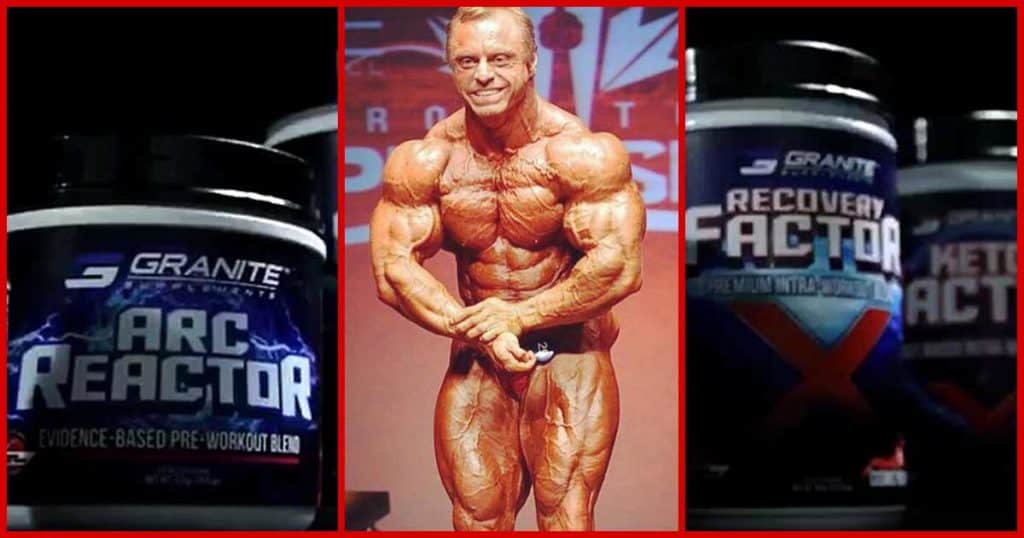
Muscle-building guru, John Meadows and his line of supplements, Granite.
Electrolytes
Crucial for optimal hydration of the body, electrolytes also help to deliver nutrients to muscles. This process increases glucose, amino acid and creatine uptake, which help with the muscle building process. The pump, which many gymgoers chase after is not just for temporary cosmetic effect, but helps you grow too!
Other conditions
There are many other conditions that specific supplements can help with, but it would be too long to categorize every one of them. Below is a small sampling of situations with the corresponding supplementation.
Further stress management:
Adaptogens like rhodiola and cordyceps help the body to mitigate stress response, so that the body does not produce too much stress hormones and overwhelm the body.
Sleep:
Apart from magnesium, melatonin is an inexpensive and effective supplement to help with sleep issues, signaling the body to get ready for rest.
Energy Production:
Very often, nutritional deficiencies can result in the body not having the raw materials needed to produce energy effectively at a cellular level. B Vitamins and ribose help the body in the process of energy production.
Digestion:
High stress can very often lead to poor digestion, which results in malabsorbtion of food. Digestive enzymes, with a small amount of hydrochorlic acid can help with this.
CONCLUSION
Although we are not in the main business of selling supplements to our Genesis Gym Singapore clients, we want to make sure that our clients achieve their health goals, whatever they may be, in the safest and most effective ways possible.
Afterall, as we have said many times, we are in the business of empowerment. Empowerment of our clients.
The Genesis Gym customised personal training programmes are not just tailor-made fitness training, our coaches also help you in 3 major aspects to achieve good health holistically:
#1: Manage your stress levels
#2: Customise your nutrition plan
#3: Help you alleviate chronic aches and pains
To find out how Genesis Gym can start you on your #transformationjourney, call us now at 93374188 or email [email protected].
